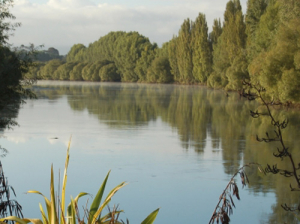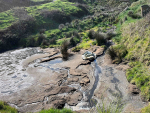About 100 farmers turned out to the first Waikato Regional Council open days in Otorohanga and Reporoa last week to discuss the Healthy Rivers/Wai Ora Proposed Waikato Regional Plan Change 1.
The open days to explain what the plan change might mean for landowners and how they can have their say have generated good discussion so far, says council chief executive Vaughan Payne.
“The clear message from farmers is they care about water quality in the Waipa and Waikato Rivers and ensuring they have good management practices on farm. Many of them have already done a lot of work and are well placed for Healthy Rivers,” says Payne.
“There were a lot of questions around the timeframe for specific work, like stock exclusion, the costs of implementing the plan and concerns around the use of a nitrogen reference point which many see as a grandparenting approach, particularly as it relates to drystock farmers.”
Submissions on the proposed plan are open until 5pm, March 8, 2017, the council giving an extended period to allow people to understand what is proposed and make informed submissions.
“We’re telling landowners if there are aspects of the plan that don’t sit right, they need to make a submission and tell the hearings panel what they do want to see,” Payne says.
“In my experience, no plan is perfect upon public notification and input from the community is vital in creating its final shape.”
Jo Gaston a drystock farmer from Mahoenui attended the first open day in Otorohanga.
“We may not farm in the Waipa and Waikato catchments but we realise this has implications for us all.
“We do have real concerns about the nitrogen reference point and the restriction of land use changes that remove the flexibility in our system to adapt to changing climatic and market conditions. This will affect our ongoing economic viability and land values.
“We’ve already been doing some of this work on our property as budget allows. This means we will have to do more work under a tighter timeframe and at a greater cost if we are required to fence up to 25 degrees. We have spent a lot on water reticulation but can see that this may not be an option for more extensive hill country.”
Kerry Foreman from Pirongia agreed something needed to be done.
“I don’t disagree with it. I have grandkids. I love hunting and the native bush. There’s nothing nicer to see than beautiful clear rivers. I know we have to do something but it’s about having some flexibility around what we have to do.”
He says he liked the timeframe that has been given: “I’m in priority 2 which means under the proposal I don’t have to complete stock exclusion until 2026.
“That’s the thing, I’d say don’t panic, we don’t have to do it all tomorrow. It is a wake-up call for us all though.”
He was breaking in areas on his property and wondered how the nitrogen reference point provisions would limit how he could use his land in the future.
“We have a fairly low stocking rate but as we break in the land I want that to be able to increase. I think what’s proposed will disadvantage me from that perspective.”
He says he’d also like to see more education for urban people around what they can do to help improve water quality.
Tim Phillips a dairy farmer from Otorohanga says he had already fenced all his waterways on his property.
“We’ve also just been involved in a project replacing willow tree plantings. My goal is to improve the land. I could see this sort of thing was coming. I want to do a good job and make our business economic and sustainable.”
The biggest question he had was how it will be managed.
“Who will monitor things and at what cost? I also have concerns about what looks like grandparenting, particularly for low intensity drystock farmers who may well be locked in without options to change land use. This may reduce their land value which I think is unfair as these farmers are probably having the least impact on water quality. Perhaps it would be better to have a threshold that everyone has to meet?
“Everyone I’ve spoken to recognises the importance of our rivers and water quality. We need to balance the economic costs.”
There are two more open days being held. One in Tuakau tomorrow (Wednesday, December 7) at the Taukau Memorial Hall, 11am to 3pm, and another in Matangi on Thursday, December 8, 3pm to 7pm.
Payne urges landowners to get informed about the proposed plan.
“Through informed submissions we hope we can reach workable solutions that will also solve the complex problem of managing water quality in our Waipa and Waikato rivers.”



















